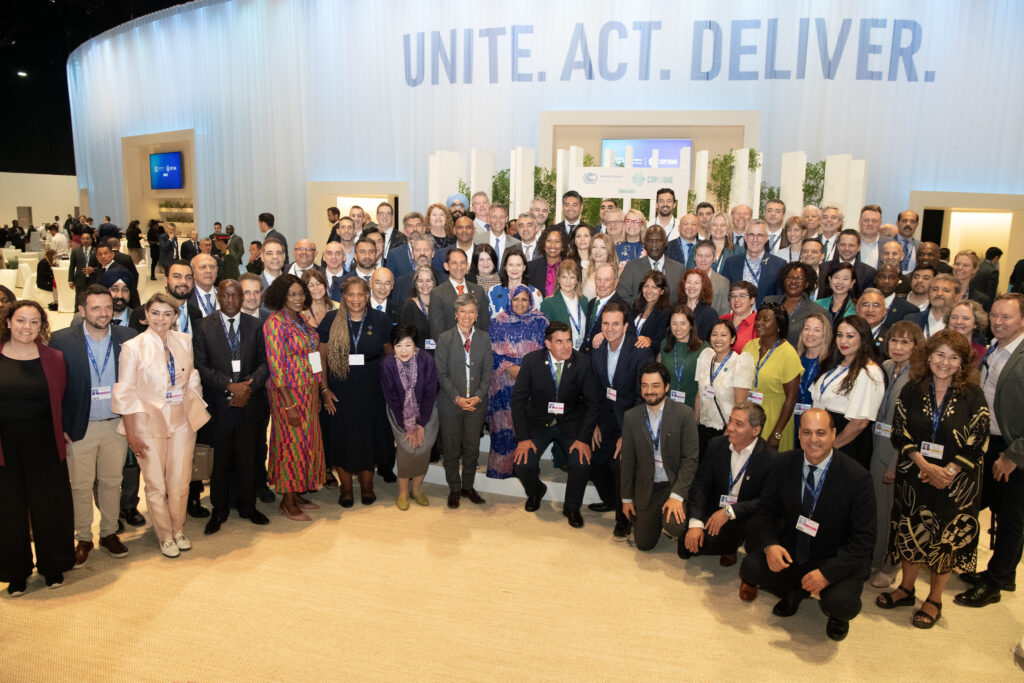
Forging ahead with tangible local climate action for global impact – GCoM Secretariat Newsletter, March 2024
It’s with great pleasure that we present the latest edition of the Global Covenant of Mayors for Climate & Energy’s biannual newsletter, a platform for updates and insights at the forefront of climate change and action. Within these pages, curated contributions from the GCoM Secretariat, GCoM’s dynamic National/Regional Covenants and valued alliance partners we offer an overview of some of the collective efforts to address the challenges posed by climate change. Discover how GCoM is working towards a greener, more resilient future, with cities leading the way.
💡 News from the Global Secretariat
Launch of the 2023 Global Covenant of Mayors Impact Report
At COP28, GCoM launched the 2023 Impact Report: Urban Catalysts – A Local Climate Stocktake, GCoM’s annual flagship report showcasing the commitments that over 13,000 GCoM signatories are making to reduce emissions and build resilience to the effects of climate change, and the ambitious actions being taken across sectors. Take a deep dive into the data here.
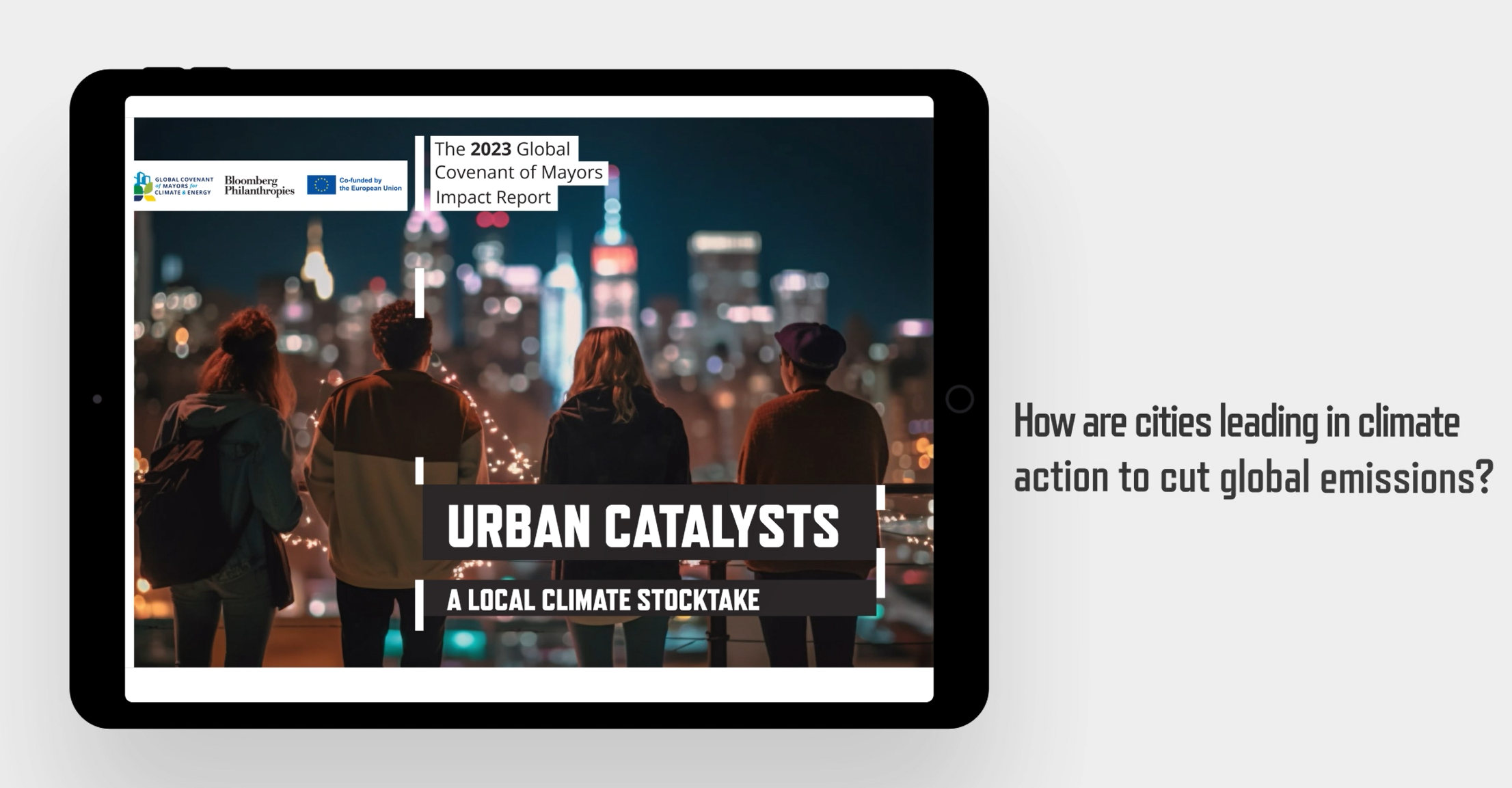
Launch of the Coalition for High Ambition Multi-level Partnerships (CHAMP)
During COP28, the UAE COP28 Presidency announced the launch of the Coalition for High Ambition Multi-level Partnerships (CHAMP) initiative, endorsed by 70+ countries that have committed to enhanced cooperation between national, regional and local governments on planning, financing and implementing national climate goals, towards updating NDCs and reducing emissions. CHAMP is an initiative developed with support from Bloomberg Philanthropies and supported by GCoM and other subnational government networks and partner organizations, such as C40 Cities , ICLEI – Local Governments for Sustainability, High Level Climate Champions, and more. Discover more information here.
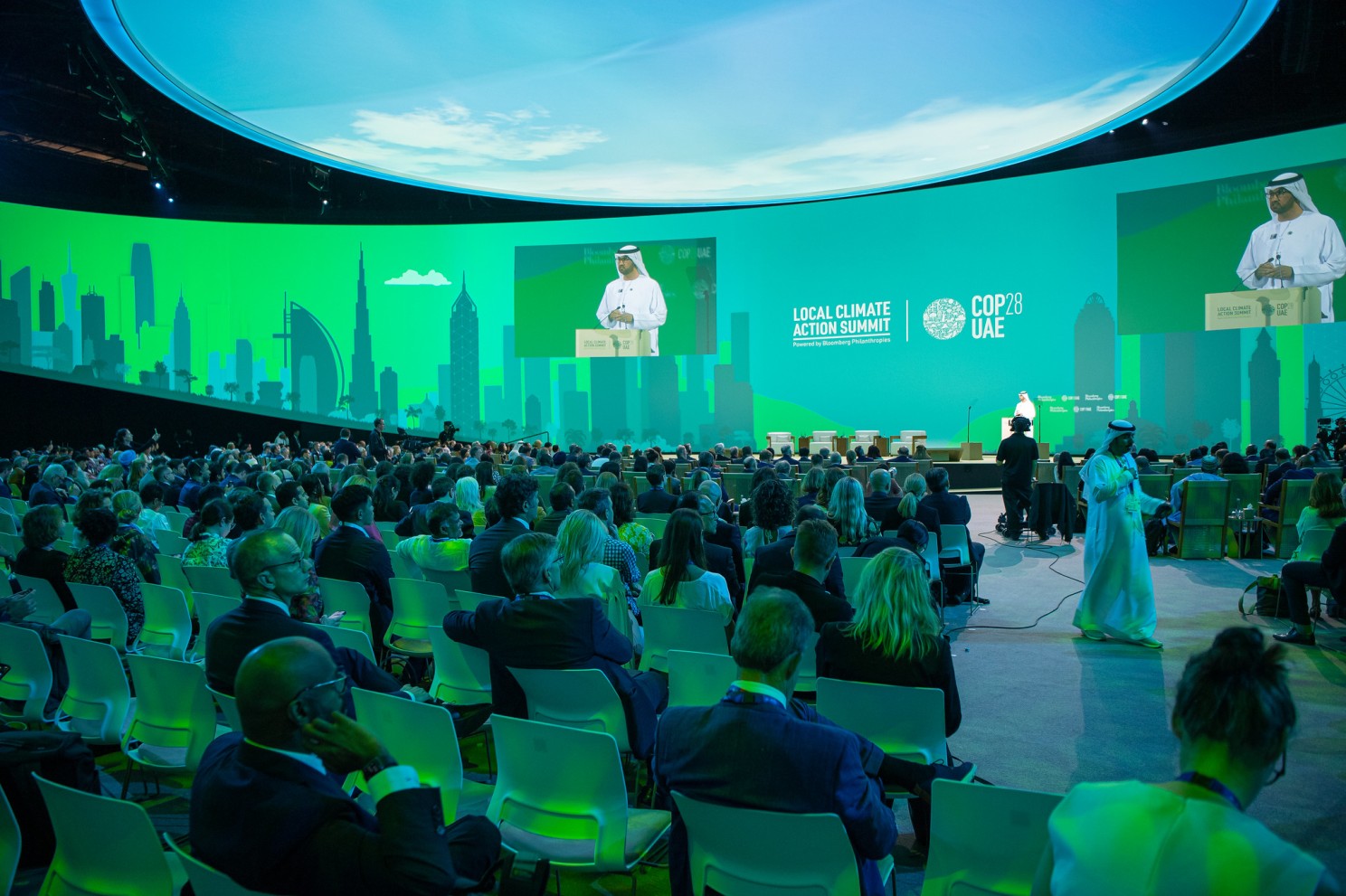
GCoM’s Business Matchmaking from Kathmandu to Barcelona
GCoM’s Business Matchmaking will be active in this year’s Smart City Expo and World Congress in Barcelona from November 5th to 7th. Business Matchmaking is designed to foster collaboration between cities and businesses to address the pressing challenges of climate action. Several GCoM cities From Asia and Latin America & the Caribbean participated in the two 2023 Business Matchmaking events held in Panama and Kathmandu, and are now engaged for follow up applications to the main project’s preparation facilities and pipelines (City Climate Finance Gap Fund, Bankable Cities). Approximately 20 city representatives will be invited from regional covenants to the Barcelona event with the objective to support these cities in defining and presenting their priority challenges, facilitating direct connections with businesses that offer viable solutions. By organizing a comprehensive participation framework in Barcelona, including matchmaking sessions in collaboration with Fira Barcelona and Acció, the Catalan Regional Promotion Agency, GCoM will provide a platform for meaningful exchanges that lead to actionable outcomes. The selection process is already underway in the regional covenants, emphasizing a diverse and representative distribution of city delegates.
Global Covenant of Mayors Highlights Findings from 2023 Innovate4Cities Marketplaces
Illuminating the roadmap for research and innovation at the nexus of cities and climate change science, the Global Covenant of Mayors for Climate & Energy released its latest report, “Shared Spaces for Urban Innovation: insights and outcomes from Innovate4Cities Marketplaces” on the sides of the Cities and Regions Summit at the Sixth session of the United Nations Environment Assembly (UNEA-6). The report’s findings serve as an actionable pathway to bolster the program, regional diversity, and richness of the 2024 Innovate4Cities Conference, set to take place in September 2024 in Montréal, Canada – co-hosted by GCoM and UN-Habitat. Read more here.
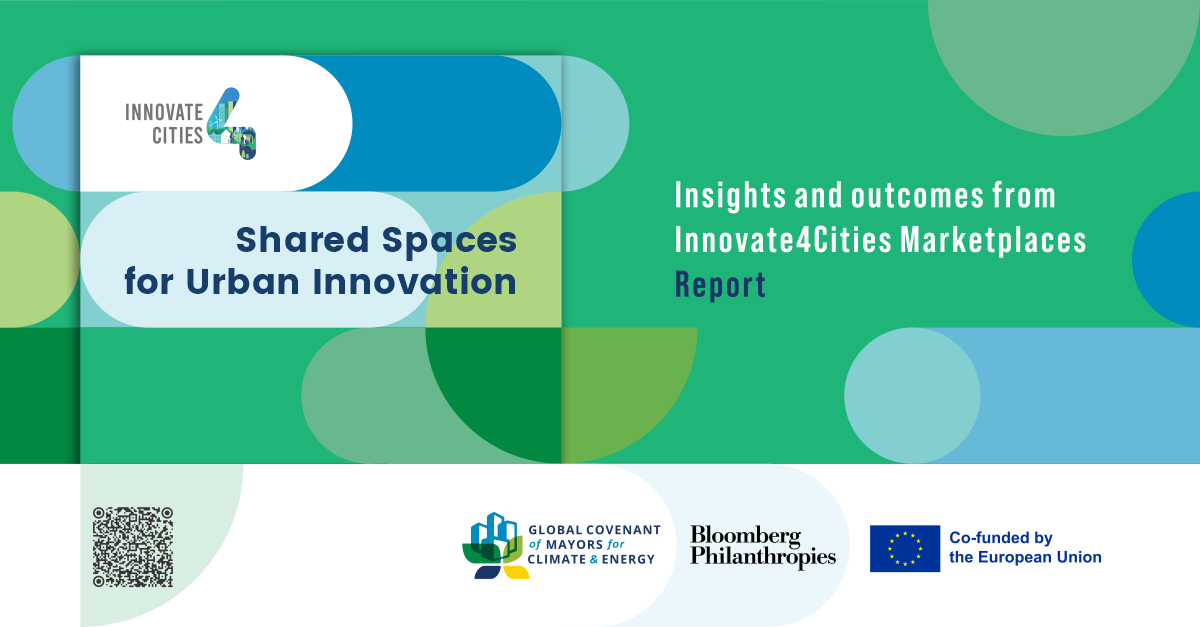
The Urban Transitions Mission Announced the Joining of 49 Additional Cities to the Mission’s Cohort
The newcomers will work together and receive support to test, pilot, and scale up innovative solutions for a holistic, people-centered urban transition to a net-zero resilient future. Since early 2023, UTM has engaged the first 48 cities of its cohort to continue advancing in their decarbonization journey and are committed and working towards an expected collective reduction of 21.635 Megatons of CO2 equivalent – the equivalent of around 3,000,000 people flying in economy class from Miami (US) to Newcastle (AUS) and back. Learn more here.
A dive into the finance-for-climate ‘universe’:
- The City Climate Finance Gap Fund Receives a Boost to Translate Cities’ Climate Ambitions Into Real Investments. Back in September 2023 the governments of Germany and Luxembourg announced new funding of EUR 50 million for the City Climate Finance Gap Fund, a multi-donor fund implemented by the World Bank & the European Investment Bank with partners, which also benefits from strong partnerships with city networks & global initiatives including GCoM, the Cities Climate Finance Leadership Alliance (CCFLA), C40 Cities, and ICLEI. The new resources will support the development of low-carbon and climate-resilient urban investments and will nearly double the Fund’s capitalization, bringing it to EUR 105 million, one of the largest early-stage technical assistance funds for cities and climate. Do you want to discover more on how exactly the Gap Fund fosters cooperation along the project preparation cycle? Go watch this tailored event from COP28.
- GCoM’s Bankable Cities Readying Projects Towards Financing. GCoM’s Bankable Cities initiative empowers cities to develop actionable climate projects. This program is designed to move projects from the conceptual stage to being ready for finance by accelerating projects’ maturity at the pre-feasibility stage of development and connecting them with the relevant financial or technical support. Projects from seven cities have now been selected for support, including a collaborative solar power plant in Rosario, Argentina; municipal lighting in Al Zarqa, Jordan; water harvesting systems in Umm El-Jimal, Jordan; a Green Mobility Zone in Udaipur, India; LED street lighting and solar traffic lights in Pontianak, Indonesia; coastal management infrastructure in Kota Kinabalu, Malaysia; and pedestrian and bicycle-friendly infrastructure in Segamat, Malaysia. These cities are now receiving personalized guidance from the GCoM Secretariat, with the first step being defining the precise support needed to effectively structure their carbon emissions reduction and resilience projects before moving into the technical support.
- GCoM, C40 Cities, and CCFLA signed a memorandum of understanding with the Climate Investment Funds (CIF), to support the development of a concessional fund dedicated to sustainable cities, with the CIF committing to collaborate on the design and implementation of the CIF Climate Smart Cities program. This is aimed at expanding urban climate finance from six MDBs in cities in developing and emerging countries.
- During COP28, Catalytic Finance Foundation and Bloomberg Philanthropies, in collaboration with GCoM, announced the launch of Catalytic Cities, a program aiming at developing new blended-finance investment vehicles to mobilize finance for urban climate solutions.
🆕 New resources! 🆕
The Integrity Matters for Cities, States, and Regions Report
Credibility, fairness, and transparency are at the heart of effective climate commitments. In this direction, an Expert Group convened by GCoM and the World Resources Institute launched at COP28 the Integrity Matters for Cities, States, and Regions report. Serving as a follow-up to the flagship High-Level Expert Group (HLEG) Integrity Matters report launched last year at COP27, it outlines recommendations for subnational governments to ensure the credibility, accountability, and transparency of their net zero commitments while acknowledging their varied capacities and characteristics.
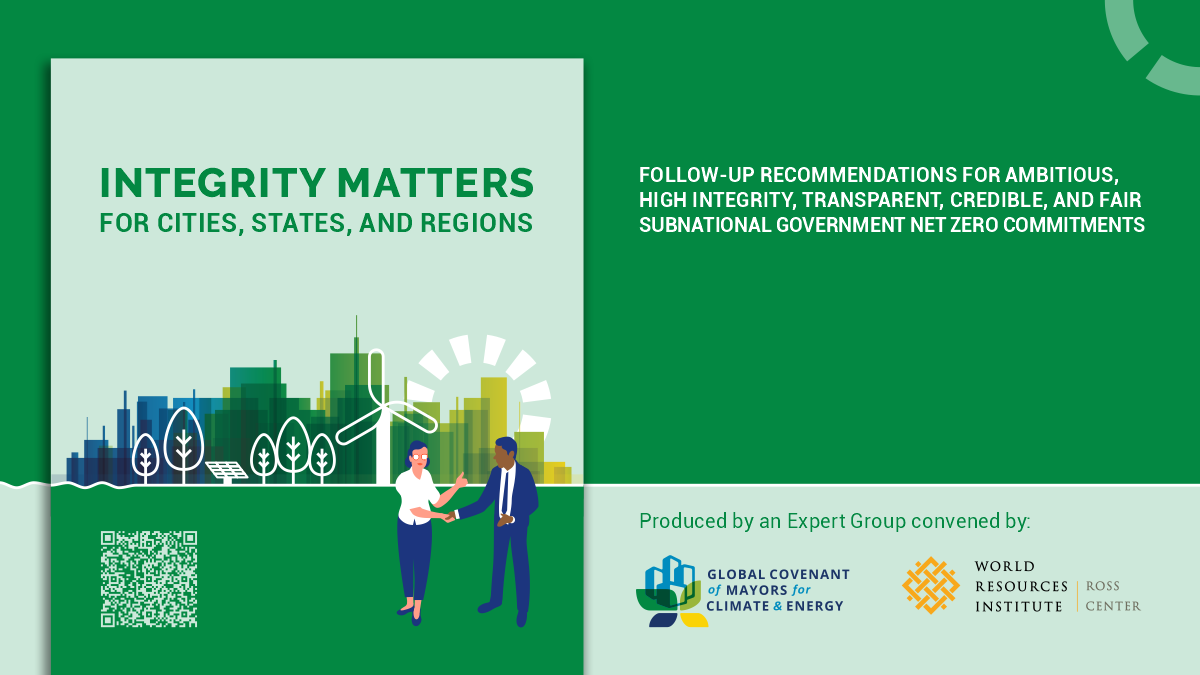
The Multilevel Climate Action Guide for Decision Makers & Multilevel Climate Governance Atlas
In partnership with the World Resources Institute, GCoM released the Multilevel Climate Action Guide for Decision Makers, which builds on the latest insights and good practices from the Global Covenant of Mayors alliance centered on three recommendations that can catalyze climate-focused governance and action across levels of government. The recommendations are complemented by more than 100 case studies from around the world which are presented in the newly launched Multilevel Climate Governance Atlas.
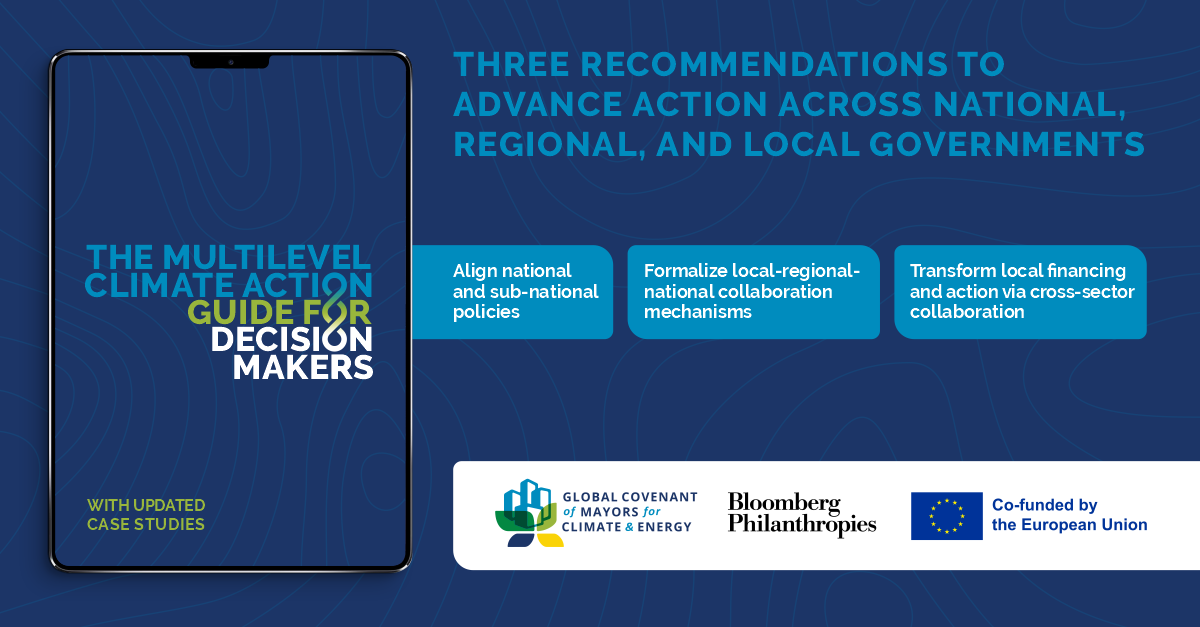
GCoM and WGIC Unveil Geospatial Blueprint to Turbocharge City Climate Action
In a decisive move towards forging ahead with tangible climate action in cities, the Global Covenant of Mayors and the World Geospatial Industry Council (WGIC) launched a new white paper titled “Accelerating City Climate Action through Geospatial Data” at Cities & Regions Summit of the sixth session of the United Nations Environment Assembly (UNEA-6). This joint effort sheds light on how geospatial technology can change the game for city-scale data, with applications that can help local governments understand and reduce emissions, identify climate risks and vulnerabilities, and catalyze energy transitions. Find out more here.
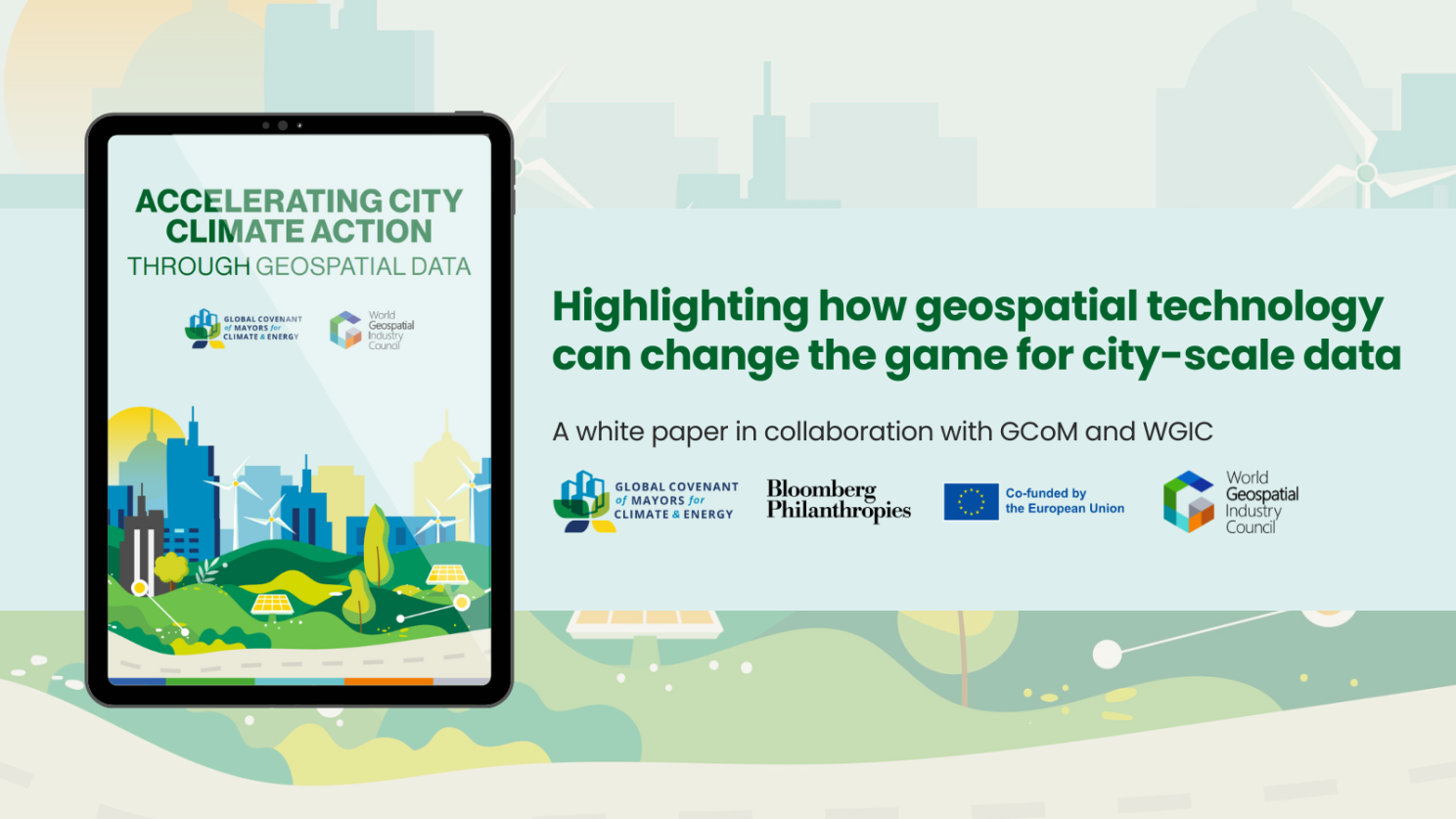
🌍 News from our Regional and National Covenants
Accelerated Climate Action in Latin America
Since 2021, GCoM has accelerated the implementation of climate action in cities of eight Latin American countries, with Mexico leading the way by concluding its strategies in 2023, while Argentina, Brazil, Chile, Costa Rica, Colombia, Ecuador, and Peru are still progressing in 2024.
Another successful project in Latin America is the “Flagship Cities” program, which entered its third phase in 2024, providing technical assistance towards implementing ambitious climate projects in some of Latin America’s largest cities.
In 2023, a highlight of the Americas region was the “Meeting of Latin American and Caribbean Cities of GCoM” in Panama City during the LAC Climate Week 2023, which brought together over 20 mayors from Latin America and the Caribbean to discuss climate action, gender inclusivity, and local climate planning and finance.
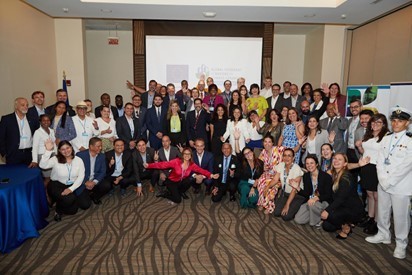
In 2024, LAC cities will be invited to join a series of activities at the ICLEI World Congress (São Paulo, 19-21 June 2024), promoting a common voice towards COP29. Stay up to date here.
15 Years of the EU Covenant of Mayors
Last month, the Covenant of Mayors – Europe turned 15 years old! As the first regional Covenant, this anniversary marks an important date for the global fight against climate change, serving as a reminder that local governments all these years have been setting the pace in climate action. Take a look back on the EU Covenant of Mayors’ evolution here and see some anniversary messages from our CoM-munity here.
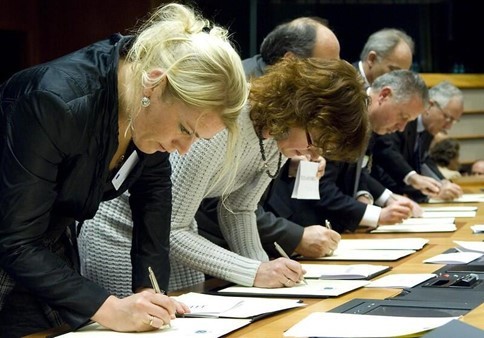
The Covenant of Mayors Europe is now entering a new era, where implementation of the European Green Deal will become a central focus. March 15th saw the covenant reasserting mayors’ essential role in mobilizing everyone in Europe’s journey towards climate neutrality at the Conference “Translating the EU Green Deal into local action”. Organized by the Flemish government under the Belgian Presidency of the European Council, the goal was to unify local and regional voices at the heart of the European Union right before EU elections. Watch back over the conference here.
Collaborations and Badges in Sub-Saharan Africa
Innovations and collaborations propel local climate action: The Covenant of Mayors in Sub-Saharan Africa (CoM SSA) is bringing together local and international experts to devise customized solutions in Mombasa (Kenya) and Abuja (Nigeria), and deepening its support in Kenya by co-developing a pipeline of renewable energy and energy efficiency projects in county-owned facilities. Drawing on regional synergies, CoM SSA successfully brought municipalities together to develop joint Sustainable Energy Access and Climate Action Plans (SEACAPs) in the Maputo Metropolitan Area (Mozambique) and Kloto(Togo).
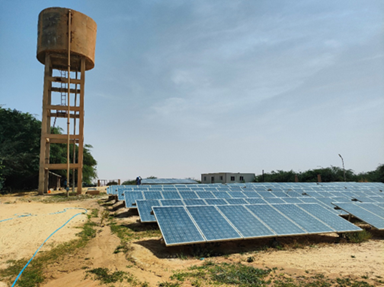
In 2023, 50 climate and energy badges were awarded to signatories, and SEACAPs are completed, implementation becomes the focus. To date, CoM SSA has supported 65 city-level projects, with a total potential investment volume exceeding EUR 588 million. CoM SSA Mayors continued to show their unwavering determination to accelerate climate action in the region at COP28 and in other engagements. Hear from our Mayors in Ghana. 2023 highlights here.
Cities to Implement in North America
Fifteen Canadian cities have been selected to join the GCoM Canada Implementation Cohort. Throughout 2024, these cities will receive support to deliver their climate actions, bridging the gap between planning and implementation to realize the climate targets and securing a low-carbon, resilient future. The GCoM Canada Cohort will help by providing trainings and producing tailored deliverables focused on securing funding, fostering cooperation, and effectively monitoring climate initiatives. Read more here.
Advancements and Endorsements in South Asia
GCOM South Asia has led impactful events and initiatives, fostering climate resilience and sustainable urban development. A recent workshop ‘Advancing Climate Action and Enabling Access to Climate Finance in South Asia’ in Kathmandu (Dec 2023), hosted by AIILSG aimed to equip signatory cities with tools to access climate finance and connect with EU businesses for technical solutions. Nepal’s Deputy Prime Minister during the event endorsed GCOM, urging more Nepalese cities to join. (Read More)
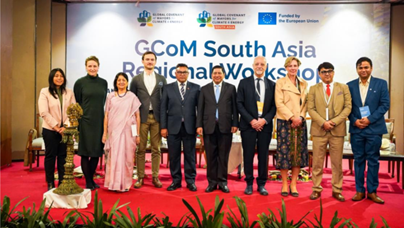
Meanwhile, local governments have achieved a lot, including Chennai’s first Climate Action Plan, designed with stakeholder consultations; Indore’s transformation into a ‘zero plastic city’ through comprehensive waste management strategies and Kochi’s implementation of a flood alert system in collaboration with the University of Messina; new CAPs under development in Pune, Leh, Junagadh, Jamnagar, and a data-driven baseline study for Kolkata. These efforts collectively demonstrate the importance of localized, actionable strategies in combating climate change.
The Next Stage in Japan
At the GCoM Japan Next Stage 2024 event on January 22nd 2024, seven covenant mayors to respond to questions about their efforts in addressing climate change. All leaders answered that climate is their top priority, and that they expected GCoM to provide a local government network.
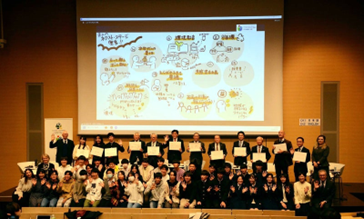
Youths (one high school student and two university students) presented their initiatives and posed questions to the mayors, fostering intergenerational dialogue. The Paquet EU Ambassador to Japan and representatives from the Ministry of the Environment joined the discussions, enhancing awareness of collaboration with the government and the global community. As the event concluded, each participant wrote on a panel their aspirations for the future (their next stage) and shared these thoughts with all attendees by displaying and presenting them. Read more here.
New Board Mayor and Major Meeting in Eastern Europe
During COP28, GCoM announced the appointment of Oleksandr Senkevych, Mayor of Mykolaiv, Ukraine, to its Board of Mayors!
The region had a very active 2024. In January 2024, Moldova hosted its third Municipal Development Coordination Platform (MDCP) meeting, attracting over 50 participants, including local authorities, national officials, and experts in energy and climate. The event emphasized sustainable local development, enhancing energy efficiency, adopting green energy, and the role of local governments in energy and environmental protection. Discussions highlighted funding for energy projects and successful practices from Moldova’s Covenant of Mayors for Energy and Climate (CoM East ) signatories. This meeting exemplified the collaborative efforts across Eastern Partnership countries, aiming for a 30% reduction in CO2 emissions by 2030 and promoting sustainable investments. Re-watch the event here.
📰 News from our partners
Updates from UN-Habitat
Building on the outcomes of COP28, particularly the discussion from the Ministerial Meeting on Urbanization and Climate Change, co-hosted by UN-Habitat (United Nations Human Settlements Programme) and the Local Climate Action Summit (LCAS) summarized in the Joint Outcomes Statement, focus has shifted to an immediate opportunity to strengthen Nationally Determined Contributions (NDCs).
The Coalition for High Ambition Multilevel Partnerships (CHAMP) saw 70+ countries endorse the pledge, of which 29% had NDCs showcasing strong urban content. An analysis, available on UN-Habitat’s website, identifies specific opportunities to strengthen the contributions cities can make to national and global commitments, crucial as countries revise NDCs in the next year.
Work is also underway on the Innovate4Cities conference, co-hosted with the Global Covenant of Mayors, a key moment on the 2024 calendar informing climate processes such as the upcoming IPCC Special Report on Climate Change and Cities. Lastly, UN-Habitat’s next World Cities Report will focus on climate change, with a call for case studies open until March 28, 2024.
CDP’s Global Infrastructure Snapshot
With a focus on climate finance and non-state actors at COP28, CDP launched its latest Global Infrastructure Snapshot at December’s global gathering in Dubai. The report highlights the golden opportunity for governments, businesses and financial institutions to invest in city climate finance and help deliver the growing number of sustainable and resilient infrastructure projects across the world, particularly in the Global South. Based on data provided by over 1,000 cities reporting their environmental data through CDP-ICLEI Track, the Snapshot’s fresh insights show that 636 cities in 86 countries reported 2,346 climate-related infrastructure projects in 2023. These projects, worth over $146 billion, are seeking over $65 billion in investment to be delivered. Explore the Snapshot’s interactive page to discover more about trends in global climate projects.
The Transformative Actions Program (TAP) – ICLEI – Local Governments for Sustainability
The Transformative Actions Program (TAP), led by ICLEI and supported by a consortium of specialized partners, is a global initiative to assist subnational governments and local businesses turn their sustainable infrastructure ideas into solid, investment-ready projects.
TAP speeds up funding for sustainable infrastructure projects in cities, towns, and regions by connecting them with potential investors and project preparation facilities, as well as providing personalized support for project development. TAP support includes reviewing project ideas (checking quality, strength, potential impact), offering suggestions for improvement, and providing tools, mechanisms, and training on how to present projects to funders or investors. Since starting in 2015, TAP has received over 400 local project proposals. TAP-supported projects have secured financing and/or technical assistance totalling €1.9 billion in investment volume. The current project pipeline is valued at €1.8 billion, with 79 projects from Africa, America, Asia, Europe, and the Middle East. Visit the tap website here and apply here.
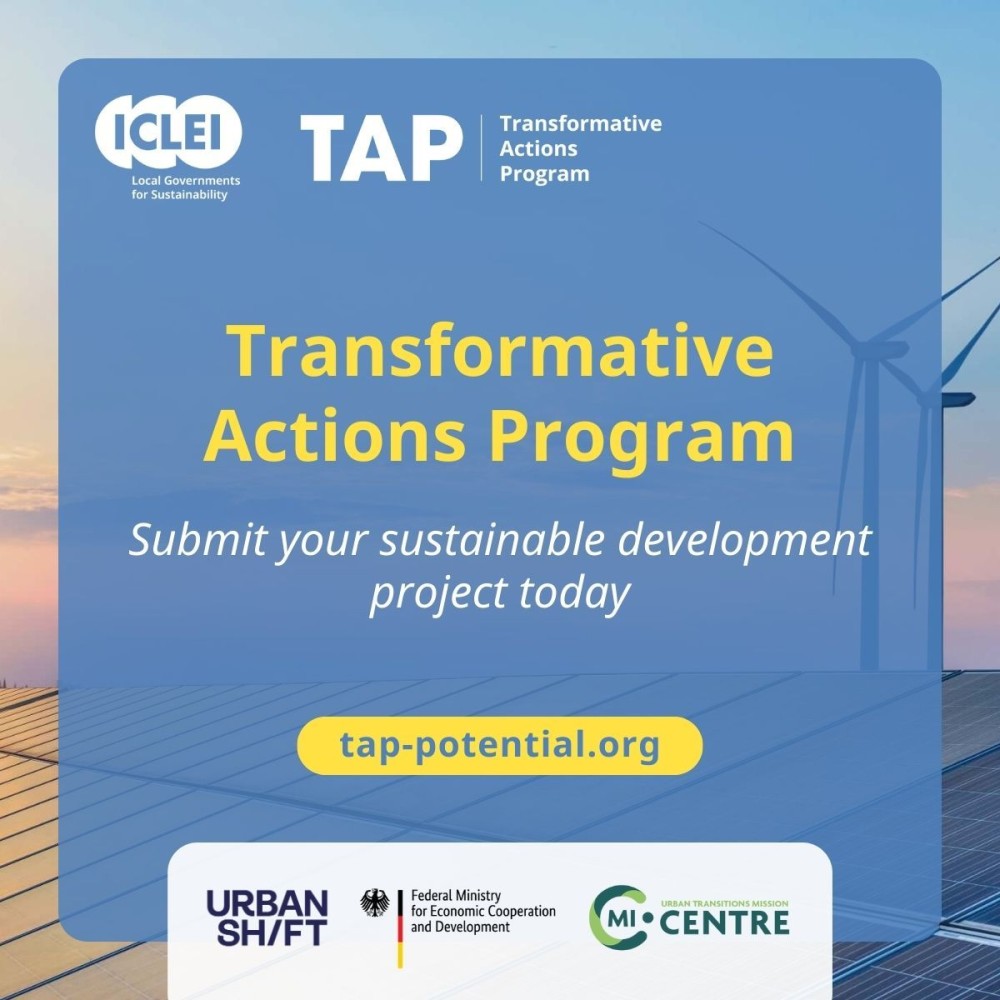
Thank you for reading! Stay tuned for the next edition.